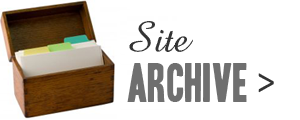
It should ensure dental health in the future (also in the past) (10)
The answer, as you've probably worked out, is TOOTHPASTE: TOO (also) + TH(PAST)E. With its explanatory definition and undisguised wordplay, the clue is the kind that'd get solved at sight by a seasoned solver.
So the clue is easy, but it is no less elegant for that. Look at the way the cryptic elements come together in an expressive surface, how the phrases "in the future" and "in the past" balance each other.
It is not easy to write an easy clue, says Anax. Read on for more from him on the topic. – Shuchi]
Much has been written (or at least I've banged on about it myself often enough) about the common novice setter mistake of equating 'hard' to 'good' when it comes to clue-writing, but it's rather hard to explain how a good easy clue should be written.
Anagrams and hidden answers are usually a logical place to start, but most commercial outlets set limits on the number of each which is permitted in a single puzzle and, in any case, clever use of wordplay indicators can make even the most obvious clue deceptively tricky. For me there are two elements/approaches to easy clue-writing:
- When breaking the answer down into components – charade, container etc – going with the first idea that jumps out.
- Not disguising everything. A part of the answer may be AND, OR, IN, HAS etc; there's no harm in presenting these elements exactly as they are.
We might also consider brevity and/or using only the simplest of wordplay indicators, but these have their own pitfalls. A brief clue isn't necessarily easy and, while simple wordplay indicators are fine, the results can be rather crosswordy.
The TOOTHPASTE clue, I admit, didn't have anything to do with the first approach. After thinking of less obvious things that could be applied with a brush, I'd honed in on TOOTHPASTE and spotted THE SOAP, wondering if it might form the basis of a nice anagram clue. It didn't, so I started looking at other ways to break it down, and at that point TOO + TH(PAST)E was the first candidate. I hadn't imagined keeping both THE and PAST exactly as they appear in the answer, but 'in the past' is such a stock phrase it felt daft to attempt any disguise. The result is an almost shockingly easy clue, but it feels right. You could probably come up with a far better definition, but the wordplay is about as natural as you can get. And, of course, 3 wordplay elements plus container indicator totalling only 3 more letters than the answer is a bonus for fans of concision.
Over the past couple of years, many solvers who used to feel let down by easy puzzles have come to appreciate how much skill is involved in writing them. In terms of what devices you can use and how intricate your clue-writing can be, it's a bit like a cricketer going to the crease with a half-size bat. When I mentioned to Shuchi the idea of an article about easy clues she asked if I could get a few together; after a full day of trying to match the simplicity of the TOOTHPASTE clue I came up with nothing.
Setters such as Roger Squires, Don Manley and, to an extent, John Halpern, employ this skill day in day out, and I envy them.
As I've mentioned at the end I completely failed to write any clues as simple as the TOOTHPASTE one, which shows just how hard it is!
[Thanks for the write-up, Anax. A few good easy clues for you all to savour:
By Rufus: Found bliss intermingled with hate (9)
By Sankalak: An extremely small measure — not grams, silly! (8)
By Afrit: This can be read just as it is, so you needn't do so! (8)
- Shuchi]
Related Posts:
- On clues that reveal too much
- Do you make these mistakes when writing clues?
- What makes a crossword a good collection of clue types?
If you wish to keep track of further articles on Crossword Unclued, you can subscribe to it in a reader via RSS Feed. You can also subscribe by email and have articles delivered to your inbox, or follow me on twitter to get notified of new links.








 Follow on Twitter
Follow on Twitter Join us on Facebook
Join us on Facebook Get RSS
Get RSS

6 comments
Found bliss intermingled with hate (9) ESTABLISH*
An extremely small measure — not grams, silly! (8)ANGSTROM*
This can be read just as it is, so you needn't do so! (8)READJUST [T]
1. ESTABLISH blisshate*, def=found
2. ANGSTROM notgrams*, def= An extremely small measure
3. READJUST it can be Read just, so I need not do anything like anagram, curtail, decapitate, or any such operation. Loved this one!
This can be read just as it is, so you needn't do so! (8) read+just
Very nice clue.
Found bliss intermingled with hate (9) ESTABLISH
An extremely small measure — not grams, silly! (8) ANGSTROM
This can be read just as it is, so you needn't do so! (8)READJUST
Lovely clues :)
Reminds me of one of my personal favourites:
Who has reason to reject a bardic insult? (8)
Thanks for sharing that clue, Martin. Good one!
Post a Comment